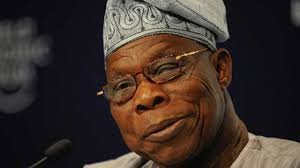The British High Commissioner to Nigeria, Catriona Laing, has explained why there has been a surge in the number of Nigerians applying for visa to the United Kingdom (UK) in recent times.
The UK envoy had attributed the increase to the fact that the UK, which likes to welcome talent, had become an attractive destination for Nigerians, especially students to study and work.
This was made known on Sunday by Laing while appearing at a News Agency of Nigeria (NAN) forum in Abuja.
Liang said that there are people of Nigerian origin in the UK and as such people will like to go to where they have family and friends, adding that the English Language makes it a lot easier.
Laing also revealed that the increase in application for student visas by Nigerians was due to the change in policy, which now allows master’s or PhD up to a minimum of 2 years to work in the UK upon the completion of their programmes.
She, however, in her speech, noted that the UK government was mindful of the situation and was in talks with the Nigerian government to avoid causing brain drain, especially in the health sector.
The UK envoy said, “You know, there are obviously people of Nigerian origin in the UK. So, people like to go where they have family or where they have friends. Secondly, the English language obviously makes it a lot easier.
“Third is education, and people who have studied will want to return. And I think you know, we are a welcoming country and we want to welcome talents, whether it’s people coming to study, or people coming to work.
“So, a lot of Nigerians will be tuned to the UK and we have seen actually a very big increase in requests for Nigerian student visas. That is partly because we have changed our policy.
“So it is now easier for Nigerian students to remain after their studies; they can stay I think up to two years if you have done a master’s or a Ph.D., which will enable people to look for work after they have studied.
“We have a labour shortage in the UK at the moment. But we have to balance that because we do not also want to be responsible for a massive brain drain from Nigeria because you also need talented people.
“So the health sector is an example where there are a lot of Nigerian medics, both nurses and doctors in the National Health Service.’’



















